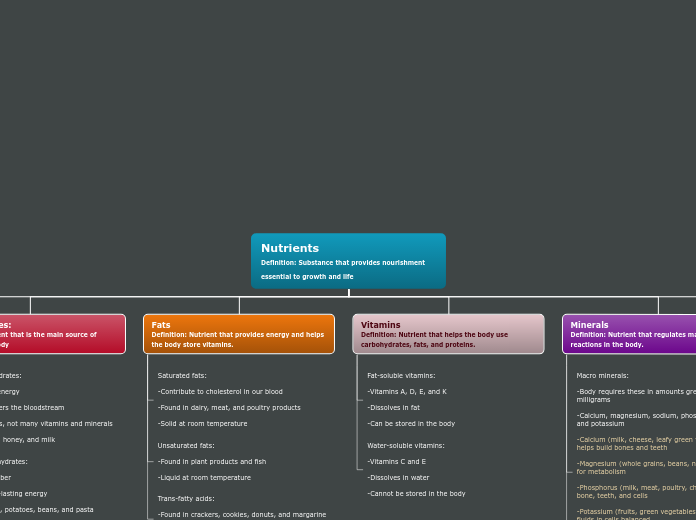av Delaney Adam 4 år siden
265
Tree organigram
Essential nutrients are crucial for growth, life, and various bodily functions. Minerals, categorized into trace and macro, play significant roles in chemical reactions and bodily processes.

av Delaney Adam 4 år siden
265

Mer som dette